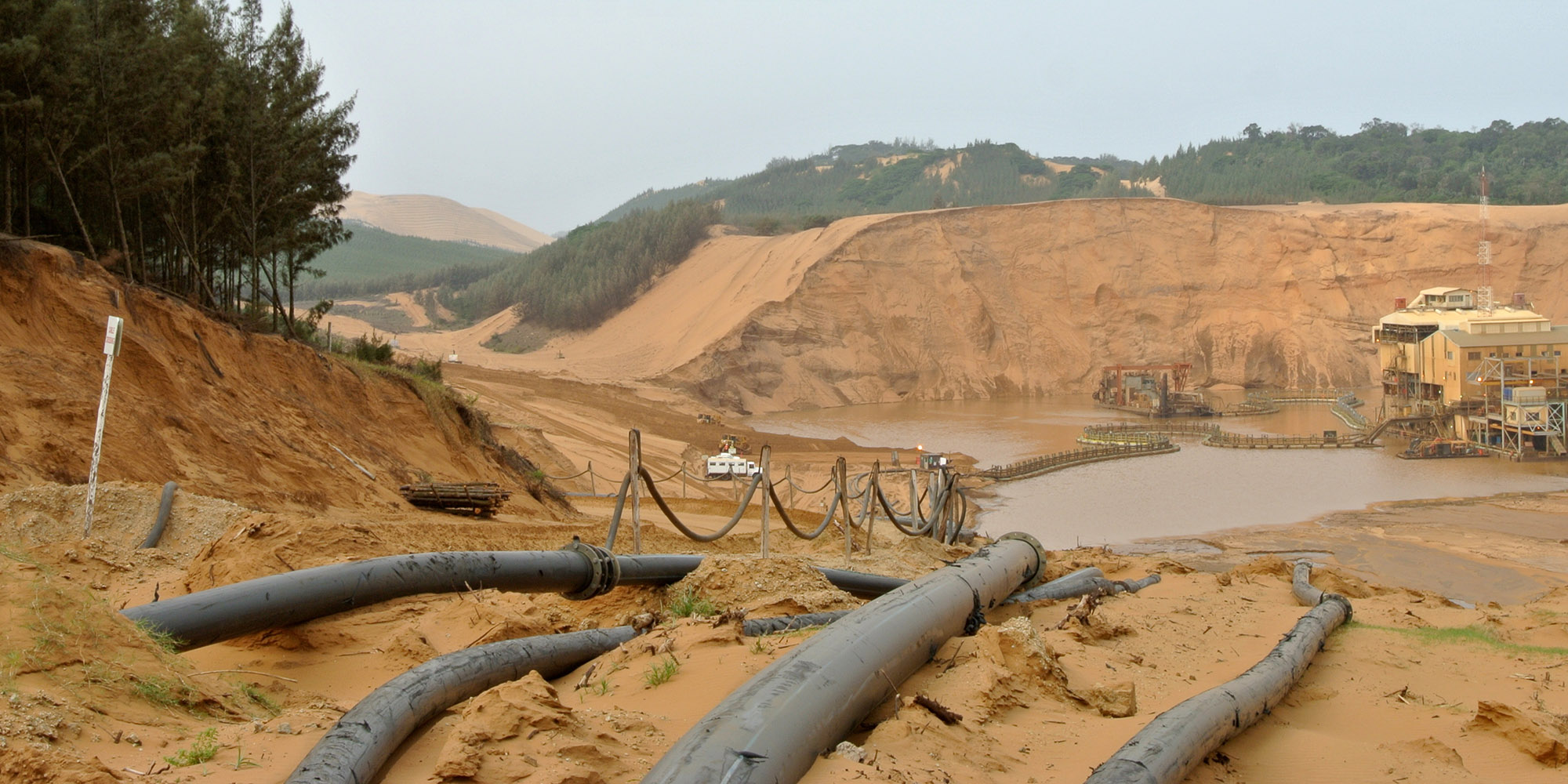Richards Bay Minerals, which mines mineral-rich sands to the north of Richards Bay, is chumming the social terrain to the south to see if it is stable enough to proceed with an expansion project that could cost more than $500-million.
It’s like a fishing expedition where you hope your line remains slack. If the minnows cast out attract predatory fish, the Zulti South expansion project will probably not proceed.
But if criminals do not take the bait, the project may get the green light from RBM's mother ship Rio Tinto.
This unprecedented pilot project could only have emerged from South Africa’s fraught and turbulent social landscape. The Zulti South expansion project — initially estimated to cost $463-million (just over R8-billion) — was put on ice by Rio Tinto in 2020 as the security situation around RBM deteriorated, culminating in the murder of general manager Nico Swart in May 2021.
Read more: State failure: Rio declared force majeure at RBM in face of violence
RBM had fallen prey to outright criminal threats by mafias seeking a piece of its procurement pie. Opaque community trusts have also been a flashpoint.
Read more: Loaded for Bear: The trouble with community trusts and the mining industry
But RBM said in June this year that the project was back on track as calm and stability returned to its operations, which produce zircon, rutile, and other minerals that are vital ingredients in a range of products from toothpaste to sunscreen.
Read more: Richards Bay Minerals’ $460m expansion project revived as security improves
A feasibility study should be completed next year and, pending that, RBM hopes to take the project to the Rio Tinto board for approval. The initial cost estimate will almost certainly have risen by then to as much as $500-million or more.
So, one piece in this puzzle is to test the waters of social stability.
 The pilot project will be only 5% of the proposed size of the finished project. (Photo: riotinto.com)
The pilot project will be only 5% of the proposed size of the finished project. (Photo: riotinto.com)
“We just started on 1 October… to construct a pilot plant in the area as part of our programme to test the stability there, and there have been no signs of disruption at this point in time,” RBM managing director Werner Duvenhage told Daily Maverick in an interview at the Joburg Mining Indaba on Thursday.
“You usually do this when you want to prove a technical concept, so instead of spending the big money to build the main plant you build a smaller version of it. In our case with mineral sands mining, I think we understand that by now, so we don’t have to prove the technical part of it. What we are doing the pilot for is to prove that we have stability in the area so that we can construct a bigger plant.
“It’s almost exclusively to test for social stability,” Duvenhage said.
Things being “piloted”, he said, would include the “procurement processes” and “community acceptance”.
Minnow
And the plant is a minnow compared to the big fish the company hopes to land there with Rio approval.
“The full size of Zulti South will be a 2,500-tons-per-hour plant, and this is 120 tons, so it’s 5% of the full scale,” Duvenhage said.
“Do we have the stability to justify the big capital investment? We want to be able to justify that in a fairly conclusive way. Hopefully we will have done enough on the ground (for it to) proceed peacefully.”
A lot is at stake. RBM is KZN’s biggest taxpayer and private employer, and South Africa’s economy needs foreign investment on this kind of scale.
But you know your country has a crime and social stability problem when this kind of experiment is deemed necessary to help convince a foreign investor to take the plunge. It is indeed a uniquely South African “pilot project”. DM




 Wwwwwwwwww (Photo: riotinto.com)
Wwwwwwwwww (Photo: riotinto.com) 